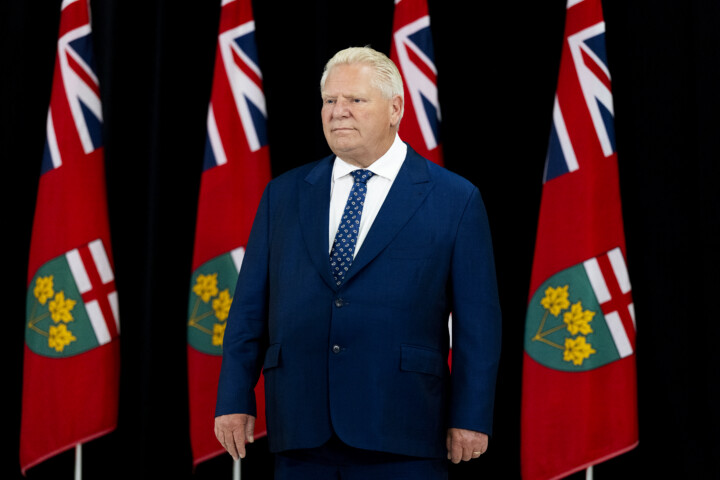Late last year The Hub was proud to publish a series of essays and podcast episodes that marked the twenty-fifth anniversary of Canadian historian Jack Granatstein’s best-selling book, Who Killed Canadian History?.
These commentaries, which brought together the different perspectives of an academic historian, a young Ph.D. student, a high school teacher, a popular historian, and even Granatstein himself, were generally sympathetic to the book’s thesis that the growing insularity and parochialism of academic historians and a broader retreat from a popularized history of the country represent negative developments that in the ensuing quarter century have contributed to Canada’s attenuation, complacency, and lack of common purpose.
The series somewhat unexpectedly drew the attention and ire of academic historians invested in an anti-Granatsteinian conception of history and its aims and methods. There were claims that the articles were “misinformation”, “one-sided”, “bad faith,” and “truly horrible.” Critics of contemporary historical scholarship were told to simply “move on.”

It’s odd that the victors of the so-called “History Wars” seem so defensive in the face of moderate criticism. Their dominant position in the field faces no real threat. They have effective monopolies over admissions, hirings, and grant approvals. The Hub is in no position to seriously challenge their institutional hegemony or the prevailing ideology in today’s history departments. Yet they still responded to our modest series with incredulity, snark, and an unjustified sense of intellectual superiority.
I was surprised that nearly a month after the series concluded, Donald Wright, a University of New Brunswick historian and president of the Canadian Historical Association, submitted an essay to us defending him and his colleagues. We’ve published it today.
Readers will of course reach their own conclusions about Wright’s article and the broader academic reaction to The Hub’s series. But it strikes me that there’s something revealing about the intellectual insecurity of those who on the one hand have such a powerful hold over the entire academic edifice, including the Canadian Historical Association itself, but on the other hand seemingly feel threatened by a handful of essays published by an online news site.
I’ll come to a possible explanation for this peculiar dichotomy in a moment but it’s worth establishing that they do indeed have a monopoly over the field. Perhaps the best (or worst) proof is the Canadian Historical Association’s 2021 statement that institutionally affirmed that Canada’s historical treatment of Indigenous peoples represented an act of genocide. There’s something inherently strange about the leading scholars in a field ostensibly committed to analysis and discovery stating that a particular historical question is settled. That the statement was unanimously supported by the association’s governing council clearly speaks to the extent to which the field is now marked by an ideological homogeneity.
It’s not that there were no dissenters. More than fifty scholars—including Granatstein—signed a letter that contested the Canadian Historical Association’s institutional endorsement of a particular historical interpretation and rightly argued that it conflicted with the principle of viewpoint neutrality and effectively turned the association into an “activist organization.”
In response, the dominant voices in the field relied on the same lazy attacks that The Hub has been subjected to rather than actually defending their position. The then-Canadian Historical Association’s president Steven High (who is a fellow Lakehead University history graduate) published his own statement that defended the association’s claims of genocide by arguing that the dissenting letter’s signatories were “(almost) entirely white” and guilty of “blind, callous, and unethical conduct.” There were also of course the same arguments (in fact, by the same scholars) that it’s “time to end the history wars.”
To his credit, Wright’s submission to The Hub doesn’t tally the race or gender of our series contributors. But otherwise, his main argument isn’t particularly compelling. He essentially argues that the “broadening” of historical scholarship is a manifestly positive development that has, in the words of historian Ramsey Cook, expanded the “limited identities” that are part of Canada’s past and present.
This is fair enough, but it’s a strawman argument. No one is really disputing that traditional lines of historical analysis shouldn’t be broadened or that there wasn’t room for new and idiosyncratic ideas and voices. The problem, in other words, isn’t the goal of greater inclusion per se. It’s that the goal of inclusion has itself become exclusionary. Certain stories and voices have been marginalized or abandoned altogether.
In a past episode of The Hub Roundtable (which Wright says “stuck in [his] craw”), I specifically said the study of history for too long had been limited to a Whiggish version that narrowly studied politics and political leaders and that it is positive that we’ve seen efforts to broaden the stories and voices that are being told. I’ve personally benefited from the rise of the new histories, including works of business, immigration, and social historians. Years ago, I even gave a copy of Mariana Valverde’s masterful book, The Age of Light, Soap, and Water: Moral Reform in English Canada, 1885-1925, to former Prime Minister Stephen Harper as he was working on his early history of the Toronto Maple Leafs.

My contention is that legitimate efforts to broaden the field have resulted in an overcorrection that’s now far more dogmatic and ideologically hegemonic than anything that Granatstein aspired to. As the Canadian Historical Association’s statement on genocide and the reaction to The Hub’s series demonstrate, the champions of these intellectual trends have increasingly become the same kind of overbearing gatekeepers that they used to disapprove of.
Which brings me back to the question: why? What explains the instinct to lash out at dissenters?
I suspect that a big factor is counterintuitively a function of their own success in effectively taking over the field. As nationalist historians and conservative scholars have slowly yet steadily vanished from campus, the new historians’ ability to defend their ideas and perspectives has atrophied. That’s what happens when one is no longer forced to confront opposing arguments, competing preferences, or alternative normative groundings altogether. The art of persuasion has disappeared in today’s faculty lounge monoculture. What’s left are empty claims of bad faith, misinformation, or denialism.
Wright has extended an invitation to Rudyard Griffiths and me to attend this year’s Canada Historical Association’s annual conference in Montreal to “see how Canadian history, and history in Canada, have been broadened.” Who he should really invite though is the signatories of the 2021 dissenting letter. Not only would they “broaden” the conference’s exchange of ideas, but their mere presence itself would force Wright and others to confront meaningful disagreement. Their weak and unpersuasive response to The Hub’s series on Who Killed Canadian History? shows that they need it.
Recommended for You

Critical thinking is critical for society—so why have we abandoned it?

We are all liberals now

Auston Matthews doesn’t owe Canada a thing

DeepDive: Can we survive the journey to AI abundance?




